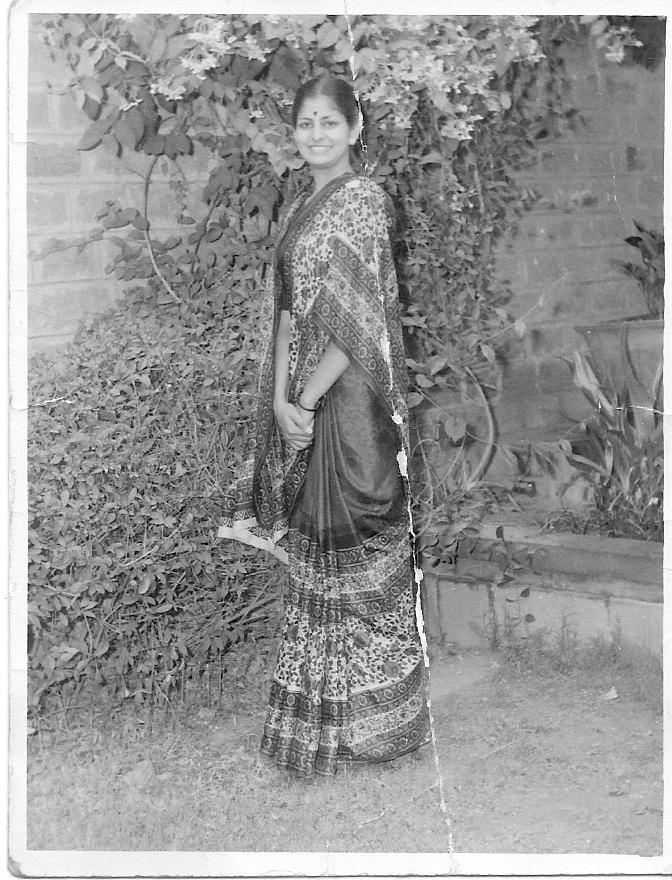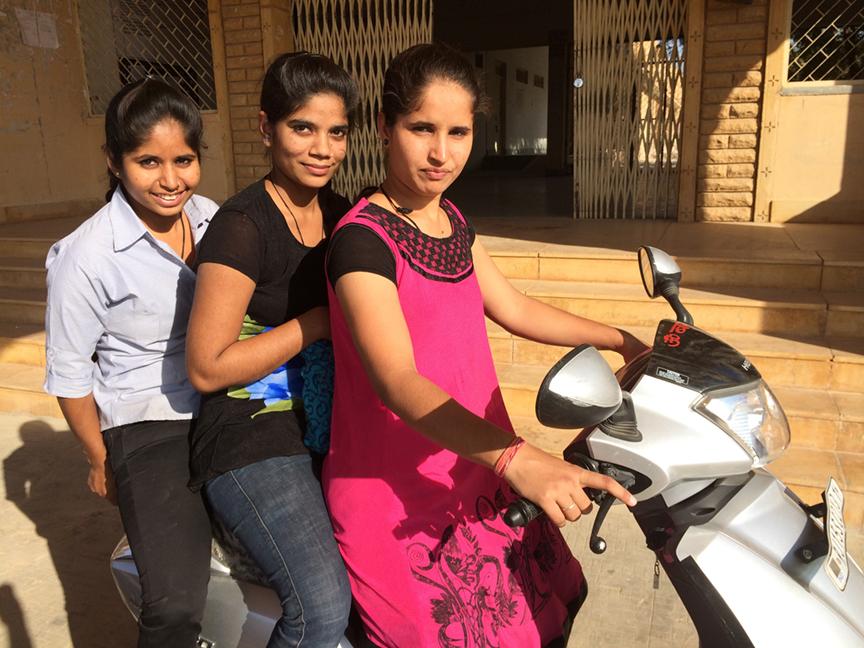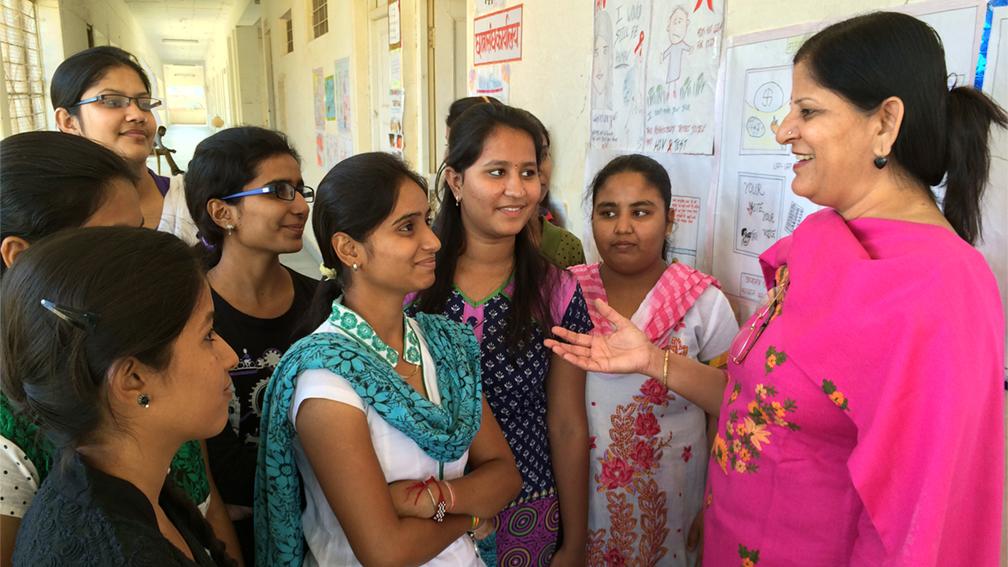Once forced to study in secret, this Indian professor inspires a generation of female students
Rama Arora teaches students at an all women's college in the desert town of Jaisalmer, India.
My mother’s cousin, Rama Arora, is the first and still the only woman to teach at a college in the small desert town of Jaisalmer, India. The fact that it’s a women’s college says a lot about the prospects for females in higher education in many parts of the country. So does Rama’s backstory: She went to incredible lengths to defy the odds and become a professor.
Rama was the only daughter in her family and had to do all the household work. Her parents encouraged her to go to school, but they resisted when she said she wanted to study business at a co-ed school farther from home.

“We weren’t allowed to study with boys. We weren’t allowed to go outside of the home on our own. We didn’t have a vehicle to go anywhere,” she says. “And we couldn’t stay out after sunset.”
Instead of business, Rama studied humanities and got a degree at a women’s college closer to home. She wanted to continue on to a doctorate so she could have a career of her own. But her parents arranged a marriage for her when she was 20. Soon she had two young children to take care of. Her in-laws disapproved of her desire to get more education.
“I had zeal that ladies should also do something,” she says. “In our society, boys get freedom, but not girls. Without education, we can’t move forward.
Rama came up with a plan. After the entire family went to bed, she would stay up all night and study in secret. She did this for six years.
“From ten at night to six in the morning, I would do my Ph.D. write-up work. I would only sleep one or one-and-a-half hours,” she says. “I wanted to do something with my life.”
It worked. Rama got her doctoral degree in sociology and finally became a professor.
When I visit, her seminar is having a heated discussion about gender issues. The students say it's wrong when families blame a girl if she's sexually harassed, and even punish her for “losing her dignity.”
%20copy.jpg&w=1920&q=75)
“These crimes happen even to women wearing traditional attire, who are covered in a full skirt and scarves,” says Sharvan Kanwer Ratnu, a second year student. “If someone has a bad intention, it doesn’t matter if a woman is wearing full traditional clothes or something else.”
Sharvan rode the streets of Jaisalmer on her scooter to get to school today. That’s almost unheard of for a woman here.
“With a lady professor, we can be open, we can tell her what's on our minds,” Sharvan says. “We can't say to a ‘Sir’ the same things we can discuss with ‘Ma'am,’ including our problems.”

Rama says she's seen her students transform before her eyes. “Girls are getting bold, getting more confidence. Now, they tell their parents they don't want to get married early,” she says.
Maravo Solanki sits in the front row. Her sister was married at the age of 14 and never got an education beyond elementary school. But marriage isn't in Maravo's plans, for now. She's an independent spirit who’s the first woman in her village to attend college.
“When I told my family I want to go out on my own, study on my own, do everything by myself, they understood I had started to change. They realized, now that she’s in college, she’s doing everything on her own,” she says.
I ask Maravo what she wants to do with her life. She says she wants to become a police officer. So does Sharvan, the student who drove her scooter to school.
“Whatever happens, I’ll never stop studying,” she declares. “I will complete my studies, no matter what. Even if I can’t become an officer, I’ll become an inspector. I’ll never stop trying, so I can be successful.”
Their professor has even bigger ambitions that her students will change society.
“I also want the girls in Jaisalmer to study and become professors themselves. That would be the happiest moment for me,” she says.
Rama’s classroom isn’t all lectures and discussions. They also like having fun. For many students, it’s a respite from the household work they’re still expected to do after class.
Today, they end the class with a popular Hindi song. It goes: “We have ambition. We’re going to reach for the stars and the moon.”
